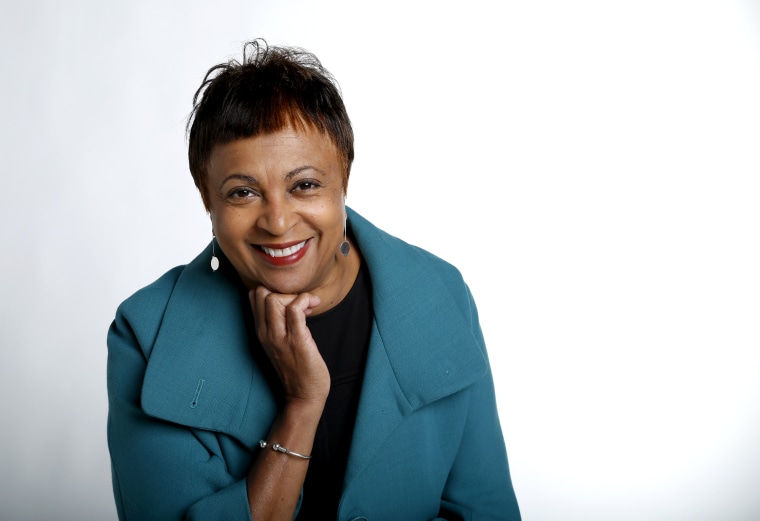When Baltimore was ablaze last year following the funeral of Freddie Gray, many establishments, schools and even churches shut down for days fearing the violence outside.
A local library, sitting at the epicenter of the riots over the death of a black man in police custody, stayed open so residents would have safe haven from the chaos. The library’s director, Carla Hayden, made the call to throw open the library doors when so many others closed.
"We knew the people would count on the library being open," Hayden said in an exclusive interview with NBC News. "There were people waiting to get in, to use the computers, to apply for jobs. There were children that couldn’t go to school. There were people that needed to find resources that just needed a place to be and there was this oasis right in the middle of all of that unrest."
On Wednesday, Hayden was sworn-in to take the reins of the illustrious Library of Congress — the 216-year-old repository harboring the country’s most sacred and revered historical works.
Hayden becomes the first woman to hold the position, which dates back to the origin of the nation, and the first African-American in the role.
She is one of only 14 people to ever hold the position. The U.S Senate confirmed Hayden as librarian of Congress earlier this year.
Hayden said she profoundly felt the historic significance of the moment and spoke of how African Americans were once "punished with lashes and worse for learning to read."
"As a descendant of people who were denied the right to read, to now have the opportunity to serve and lead the institution that is the national symbol of knowledge, is a historic moment," Hayden told those gathered at the Library of Congress for the swearing-in ceremony.
She placed her hand on a Bible used by Abraham Lincoln, which President Barack Obama also used during his inauguration, and was sworn in by Supreme Court Chief Justice John Roberts. Her mother looked proudly on.
Although the move from Baltimore to Washington will not be far, the Library of Congress will be a huge undertaking.
The Library of Congress houses over 162 million items on about 838 miles of bookshelves, not to mention the numerous functions that fall under its umbrella.
Over the last few years, the Library of Congress has also faced a barrage of criticism for mismanagement and falling far behind in basic technological advances.
Enter Hayden, who, throughout her career, has aggressively pushed to incorporate technology in libraries.
“Leading the Library of Congress requires multitasking on a scale rarely seen in other government organizations,” said Rules and Administration Committee chairman Sen. Roy Blunt, R-Missouri, in a statement. “I am confident Dr. Hayden will bring a great background and skill set to the job.”
Hayden grew up in Queens, New York and her love of books began when her mother helped her check out the book, "Bright April" by Marguerite de Angeli—the story of a young African American girl during the grips of the civil rights movement.
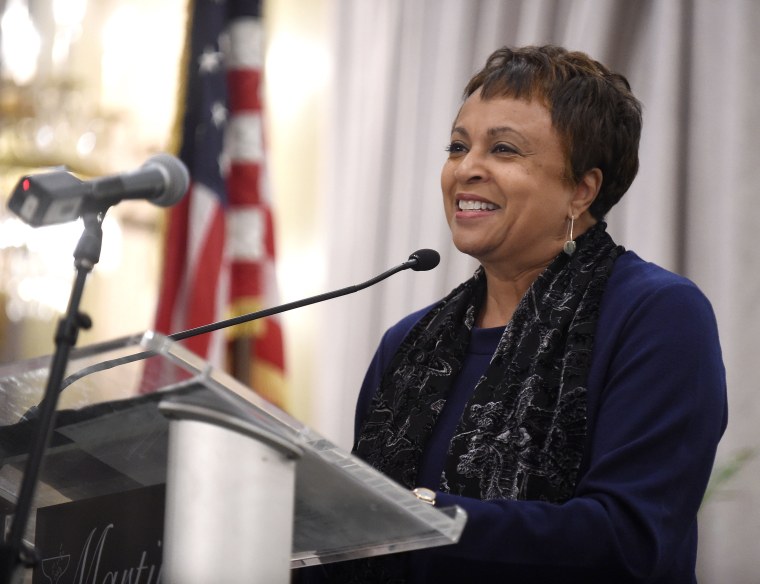
Hayden closely identified with the story’s protagonist, down to the pigtails they both wore. She immersed herself in the book which set the stage for a long relationship with reading.
"It was like a door opening for me," Hayden said. "I could read what I wanted to and I've been hooked ever since."
After receiving her masters and doctorate from the University of Chicago, Hayden stayed in the city to serve as the deputy commissioner and chief librarian of the Chicago Public Library in 1991. This is where she met the Obamas and began a relationship of mutual admiration that would circle back over two decades later when the president officially nominated her for the national position he called “long overdue.”
In 1993, Hayden headed east to become the director of the Enoch Pratt Library in Baltimore.
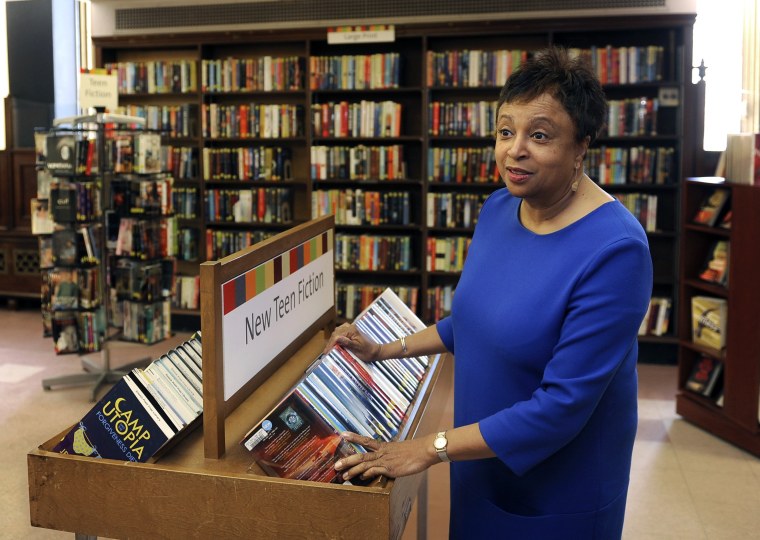
At a time when parts of the country hadn’t even heard of the internet, Hayden was already attuned to the potential of technology and immediately began integrating it into her libraries.
One year into the position, Enoch-Pratt became the first public library in Maryland to provide internet access.
Hayden sensed an undoubted need for technological equity in city like Baltimore.
"This was a tool that could help unlock things for so many people," Hayden said. Especially for those who were "intimidated by a book because they had difficulty reading," she said.
There was a definite digital divide. Many citizens had no access to the internet — either they didn’t have the equipment or could not connect.
She bought e-readers and offered classes so students from all neighborhoods across Baltimore could learn how to use the devices. Hayden didn’t want iPad and Kindles to be foreign to kids in "tougher areas" in Baltimore and began a push to integrate technology in their lives through the library, said Roswell Encina, a spokesman from the Pratt library.
“She is uniquely qualified to modernize one of the greatest cultural institutions in the world,” said Julie Todaro, current president of the American Library Association. “Carla is a perfect example of making content available for her constituents and bringing it to the 21st century,” she said.
During her tenure, she continued to preserve the library digitally. Not only did she digitize books, such as a first edition copy of "The Great Gatsby" signed by F. Scott Fitzgerald, but also the library’s unique artifacts such as a lock of Edgar Allen Poe’s hair.
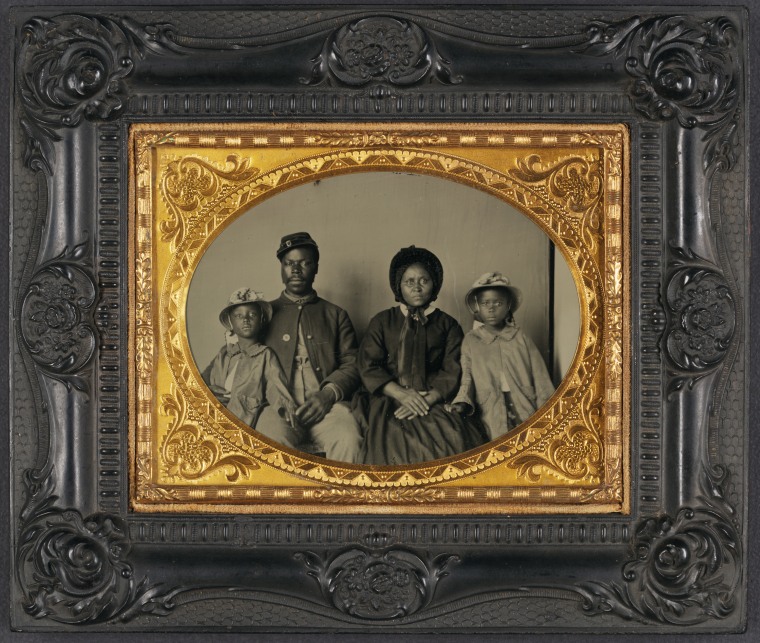
Hayden says she will be taking that digital drive to the Library of Congress.
“She’s innovative and forward thinking, she breaks the mold of what a librarian is,” Encina said. “She recognized early on that computers are vital to the community but a lot of people don’t have access to one, so the library has to provide that access,” he said.
Access was the cornerstone of Hayden’s approach. It was also the basis of a public spat with former Attorney General John Ashcroft in 2003.
In the emotional aftermath of 9/11, lawmakers quickly passed the the Patriot Act, which allowed the government unprecedented access to collect private information. The controversial law also included a"library provision,” granting government access to library records and internet searches used by library computers.
Hayden was a staunch opponent.
"We needed a balance between security and person freedom to find out," Hayden told NBC News. "We have to be sure that you don’t confuse an interest in a subject...and an intent to do something.
At the time people wanted to find out about "jihad and other terms they were hearing" and used the library to access that information, she said. That freedom and access should be protected without fear of repercussion, she said.
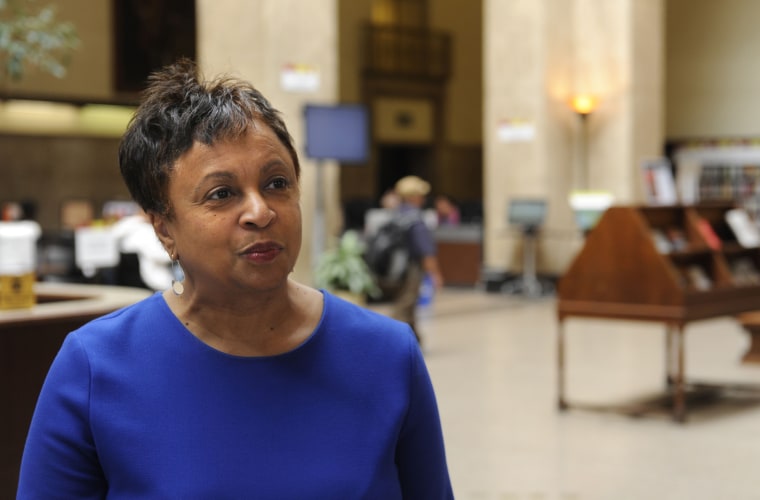
“What someone reads doesn’t necessarily say anything about what they might do — there’s no link between interest and intent. Librarians are charged with a public trust. We are there to help [people] access information; we are not in the business of judgment,” she told Ms. Magazine in 2003. “When libraries fight against the Patriot Act, or against (mandatory Internet filters), we’re fighting for the public. Most of the people who use public libraries don’t have the opportunity to buy books at a bookstore or on Amazon.com. What the library does is protect the rights of all people to fully and freely access information and to pursue knowledge, without fear of repercussion.”
Ashcroft accused Hayden of fueling “baseless hysteria”, statements that were criticized by many library supporters. He eventually withdrew his remarks, personally calling Hayden to apologize.
That fierceness served her well during her 23 years as Baltimore Library’s head, her supporters said. It's a toughness that served her well during the Baltimore riots when she committed to being available to residents.
Across the street from a CVS set on fire by rioters was the Pennsylvania branch of the Baltimore Library — the only refuge from the chaos for many neighborhood residents.
“It was a big decision to keep those doors open. She wanted a place that kids could go because schools were closed. She wanted a place for people to be away from what was going on outside,” Encina said.
Hayden continued to work out of that branch for the rest of the week.
“An individual came in the day of the riots to use the computer to apply or jobs. He was on a deadline and the city shut down. Two weeks later he came in and told us he got the job and if hadn’t been for the library he would never have gotten his application” out during that tumultuous time, Encina said.
The community was deeply appreciative. Local residents sent food and flowers to thank the library for staying open.
“She doesn’t fight for the library, rather she fights for the people that use the library,” Encina said.
“This is the top person in this field. That will show young people that you can have an extraordinary impact on your community in this profession,” said American Library Association’s Julie Todaro.
Hayden is the first professionally trained librarian to hold the congressionally-conferred position in nearly five decades. Her predecessors were largely historians.
It will be a critical skill set many say was severely lacking at the Library of Congress.
The United States Government and Accountability Office conducted a scathing review of the Library's operations and found issues with its management.
"The Library does not have an IT strategic plan that is aligned with the overall agency strategic plan and establishes goals, measures, and strategies. This leaves the Library without a clear direction for its use of IT," the report stated. "Although the Library obligated at least $119 million on IT for fiscal year 2014, it is not effectively managing its investments," and "the Library does not have the leadership needed to address these IT management weaknesses."
A new set of eyes will be welcomed, Library spokesperson Jennifer Gavin said.
“A new chief sets the tone and sets the priorities,” said Gavin. “I have no doubt that she will do the job ably and quickly with nothing but enthusiasm and skill."
Hayden taking charge of the Library of Congress sends a significant message to a younger generation, said Deborah Taylor, the director of school and student services at the Pratt library.
“There was a time when it was illegal for African Americans and women to read and write and today Dr. Hayden becomes the face of a repository of knowledge,” Taylor said. “That is powerful.”
